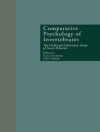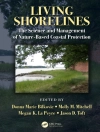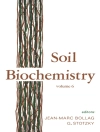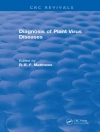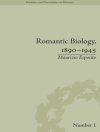Applied Natural Science: Environmental Issues and Global Perspectives provides the reader with a complete insight into the natural-scientific pattern of the world, covering the most important historical stages of the development of various areas of science, methods of natural-scientific research, general scientific and philosophical concepts, and the fundamental laws of nature. The book analyzes the main scientific trends and developments of modern natural science and also discusses important aspects of environmental protection.
Topics include:
- The problem of ‘the two cultures’: the mathematization of natural sciences and the informatization of society
- The non-linear nature of the processes occurring in nature and society
- Application of the second law of thermodynamics to describe the development of biological systems
- Global problems of the biosphere
- Theory and practice of stable organic paramagnetic materials
- Polymers and the natural environment
Key features include:
- An interdisciplinary approach in considering scientific and technical problems
- A discussion of general scientific trends in modern natural science, including globalization challenges in nature and society, the organic chemistry of stable paramagnetic materials, the fundamentals of the environmental chemistry of polymeric materials, etc.
- A justification of applying classical (non-equilibrium) thermodynamics to studying the behavior of open (including biological) systems
Of particular importance in the book is the discussion of some problems associated with the place of man in the biosphere, issues of the globalization of science and technology, new ideas about the universe, and the concept of universal evolutionism. At the same time, the book discusses more specific issues related to solving major global and regional environmental problems (particularities of organic paramagnetic materials, the influence of polymers on the man and environment, etc). All this leads to the fundamental conclusion of the unity of animate and inanimate nature, as well as improvement of the process of cognition of the real world, which consists in objective and natural changing of world views.
The book is intended for professors, teachers, and students of classical and technological universities who are interested in the development of the foundations of modern natural sciences, as well as for professionals working in the field of chemical physics and applied ecology.


